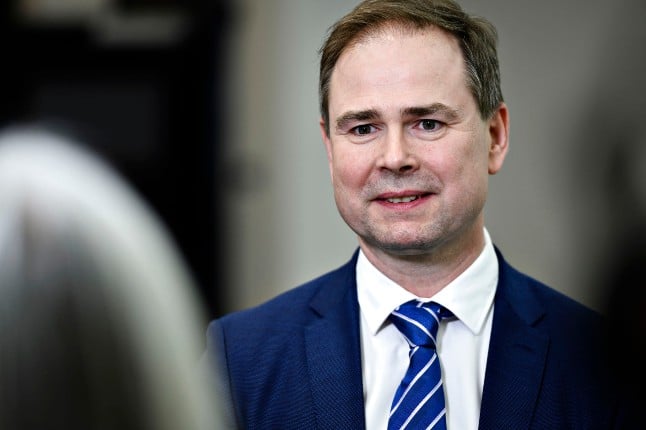God bedring @NWammen Uanset vores politiske uenigheder, så har vi brug for at have Finansministeren tilbage på jobbet hurtigst muligt https://t.co/WaLXz07EHa #dkpol
— Kristian Jensen (@Kristian_Jensen) May 6, 2020
MINISTER
Denmark’s finance minster ill with suspected coronavirus
Denmark's finance minister, Nicolai Wammen, has fallen ill and will be tested for coronavirus, the country's finance ministry has said in a statement sent out to Danish journalists.
Published: 6 May 2020 14:51 CEST

Nicolai Wammen as he presented local government funding reforms on Tuesday. Photo: Philip Davali/Ritzau Scanpix
“The Finance Ministry states that the finance minister has become sick and displayed symptoms which mean that he, on his doctor's advice, will not be tested for Corona,” the statement read. “The minister hopes to return to work as soon as possible.”
Wammen is one of the most heavyweight politicians in Denmark's Social Democrat government, having served as both EU minister and Defence Minister under Helle Thorning-Schmidt from 2011 until 2015.
His department in March and early April launched a succession of bold and far-reaching measures to limit the impact of the coronavirus shut down on Denmark's economy, winning it praise internationally.
On Tuesday, Wammen announced a significant funding reform for Denmark's municipalities, in one of the first actions his department has taken unrelated to coronavirus in more than a month.
Kristian Jensen, who served as finance minister, in the previous government, wished Wammen a swift recovery on Twitter.
“Despite our political differences, we need to have the finance minister back at work as soon as possible,” he said.
Url copied to clipboard!


 Please whitelist us to continue reading.
Please whitelist us to continue reading.
Member comments